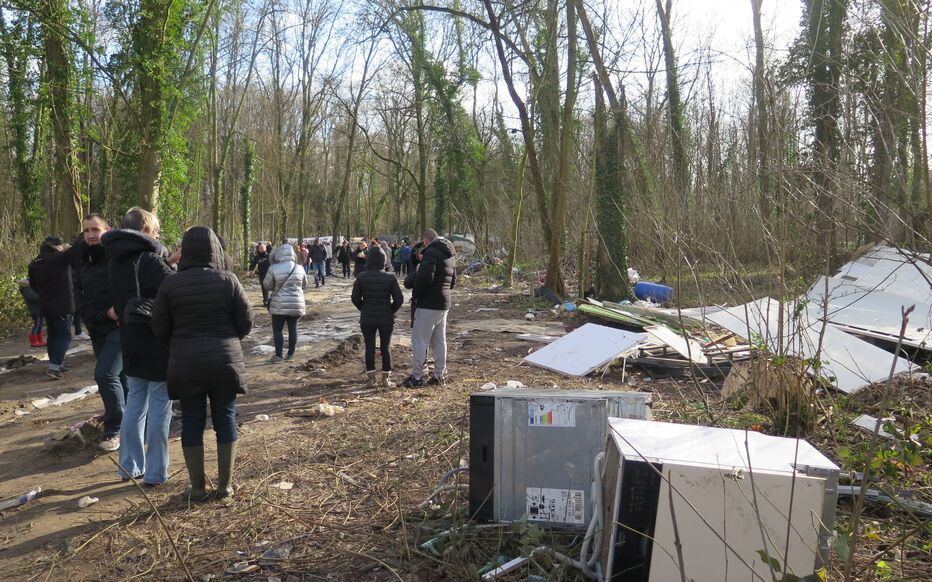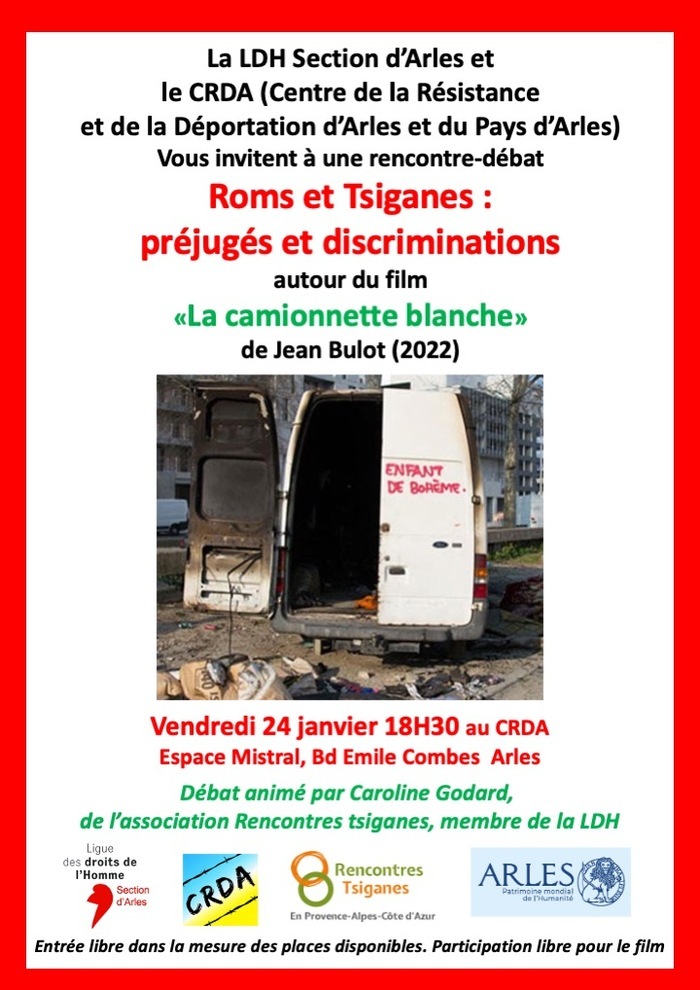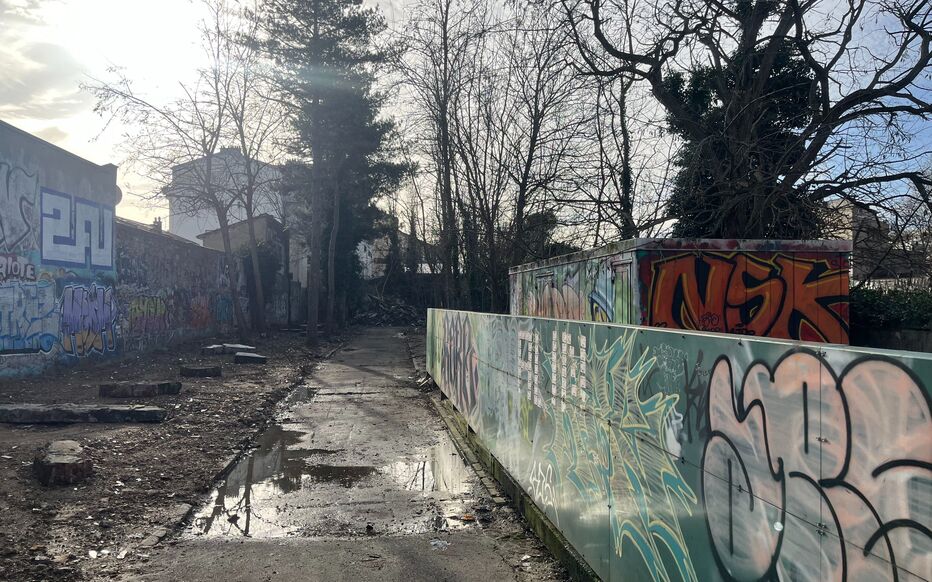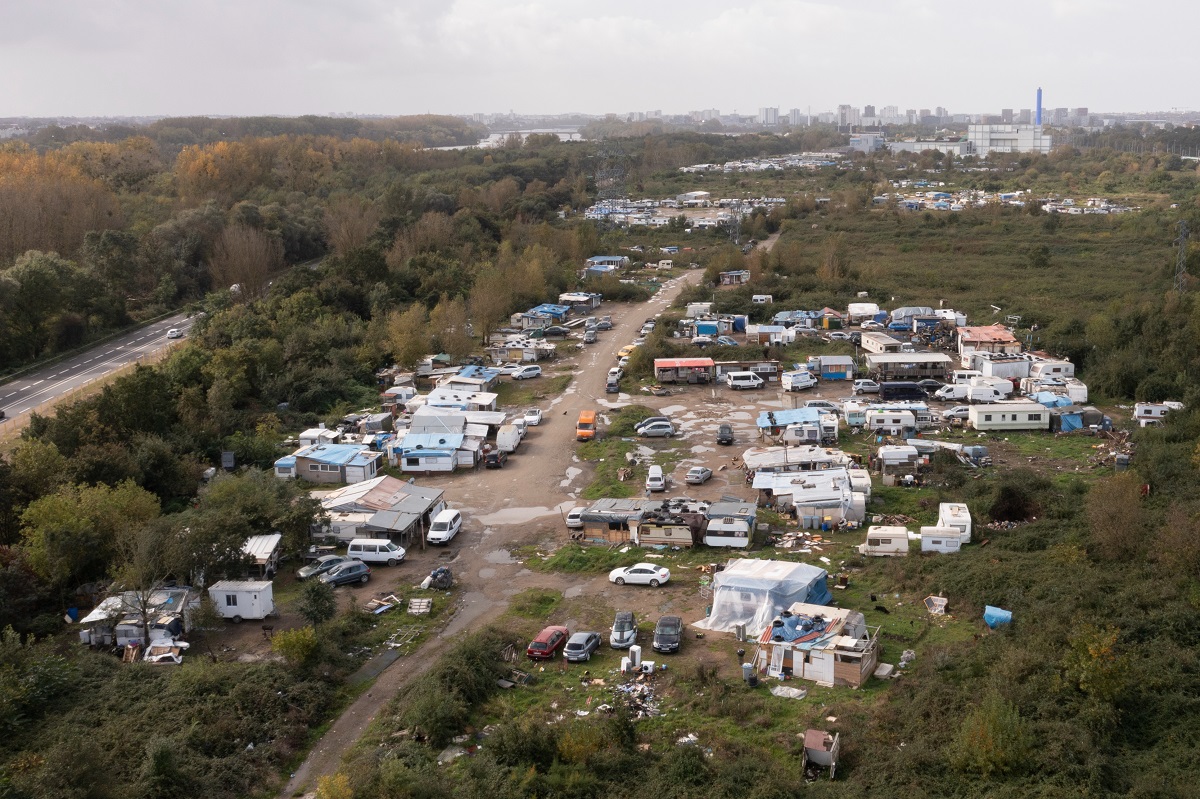Dahman (2013) discusses the one sided presentation of history of Rroma in France. Important chapters on the social exclusion of Rroma are not worked out or only very poorly presented by the French society at large. One such example are the anthropometric passports they had to carry since 1912 which facilitated their identification and delivery to the Nazi regime by the Vichy government. Another one is the 1969 introduction of a passport and the fact they had to report every six months to a police station. This controversial legislation was only repealed in 2012. The dominant historical representation of Rroma in France is one of non-existence or of distorted or false representation. This should change now as well as into the future.
Midi Libre (2013) criticises the ongoing evictions of informal Rroma camps in France. The circular from the summer of 2012, which called for a more organised and humane approach to evictions, such as the timely information of those affected or the provision for alternative accommodation places, has been as good as not at all applied. In fact, the massive evictions of settlements resulted in a forced nomadism, which historically was also often mistaken for the real life of the Rroma. The frequent expulsions also hampers the integration of Rroma, an intended side effect or maybe not. Many politicians reproach the Rroma their lack of willingness to integrate. The irony of this debate lies the fact that there is an effective impediment to integration all the while, while inclusion preached.
De Montvalon and Vincent (2013) highlight a radicalisation of the coverage on Rroma. The newest zenith of this tendency is the presentation of the magazine “Valeurs actuelles” with the provocative title, bordering on defamation “Roma, l’overdose” [Rroma, the overdose]. The Socialist Party reacted to this latest provocation with the demand and constatation, that a decided action is required xenophobia in France. The chronology of this radicalization goes back to the EU accession of Romania in 2007, after which, Nicolas Sarkozy, massively strengthened the migration policy in France, in particular against the Rroma. Vincent and De Montvalon identify these policies as being ineffective. On the contrary, according to statistics on the contrary, these policies led to more criminality among Rroma in France. But even with the change of power of the conservative UMP, the Social Democratic Party under François Hollande, there was no real paradigm shift in the policies towards Rroma in France. Rather, Interior Minister Manuel Valls has continued the evictions policies and even intensified them. In the political discourse, there is still the wrong representation that Rroma do not want to integrate, that they do not want to settle down (although most are Rroma settled) and that these behaviours are part of their culture. These tales are propagated and kept alive both by the right and by the left.
- Dahman, Wafa (2013) Festival de Douarnenez: l’histoire méconnue des Roms français. In: Culturebox online vom 29.8.2013.
- De Montvalon, Jean-Baptiste / Elise, Vincent (2013) Roms: un dossier inextricable, des surenchères politiques. In: Le Monde online vom 23.8.2013. http://www.lemonde.fr/societe/article/2013/08/23/roms-un-dossier-inextricable-des-surencheres-politiques_3465440_3224.html
- Midi Libre (2013) En France, les Roms sont condamnés au nomadisme forcé. In: Midi Libre online vom 28.8.2013.







